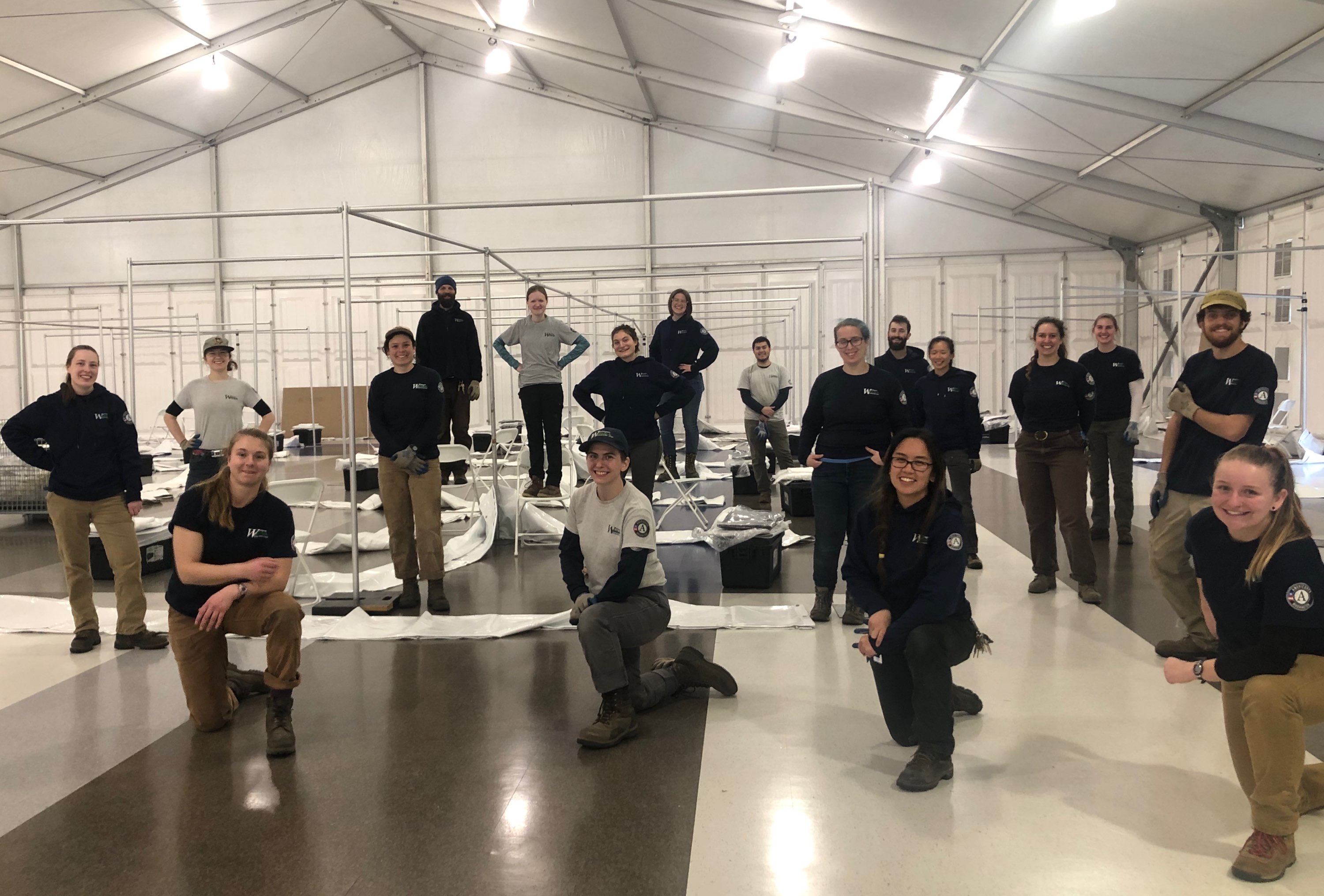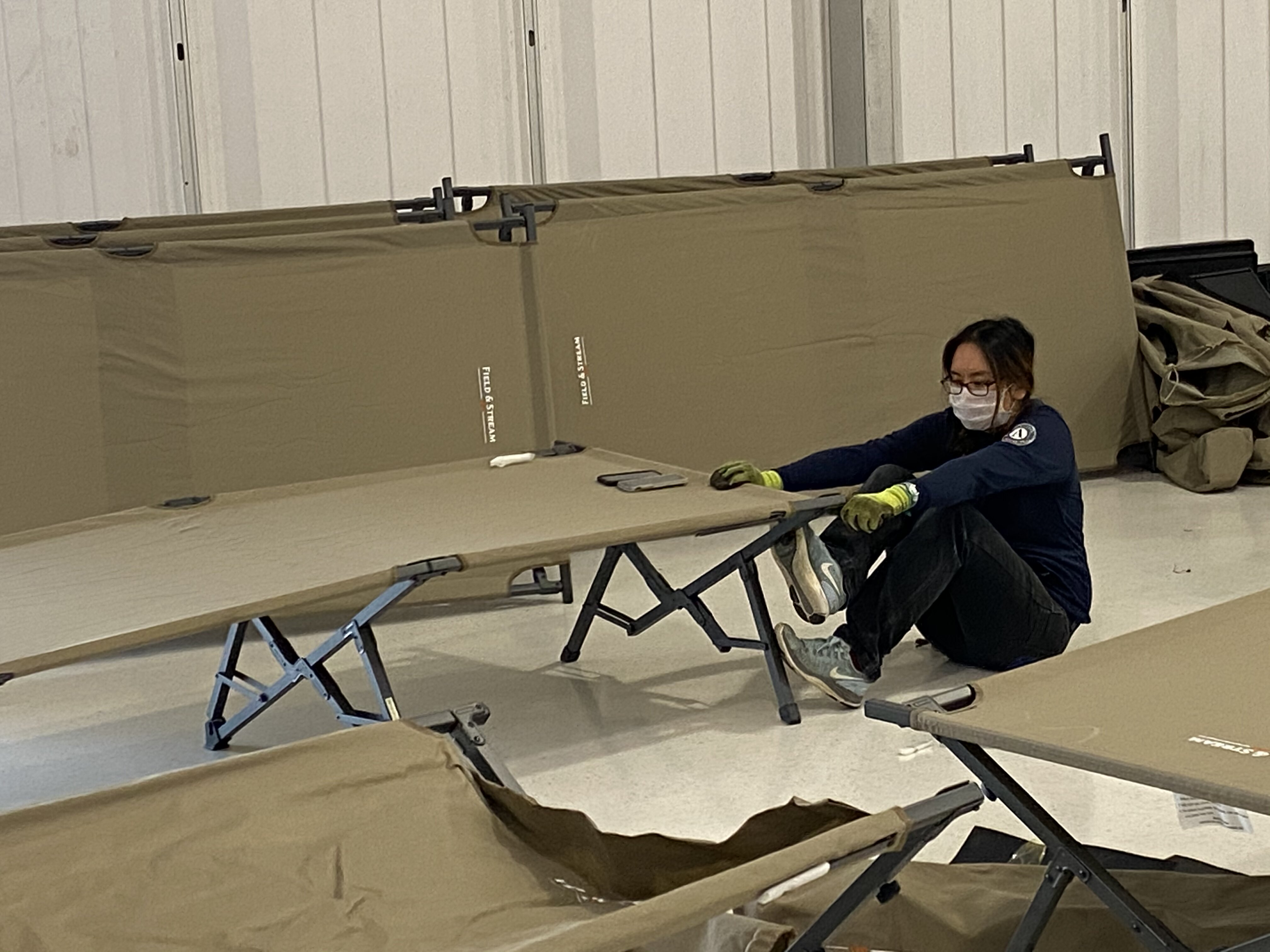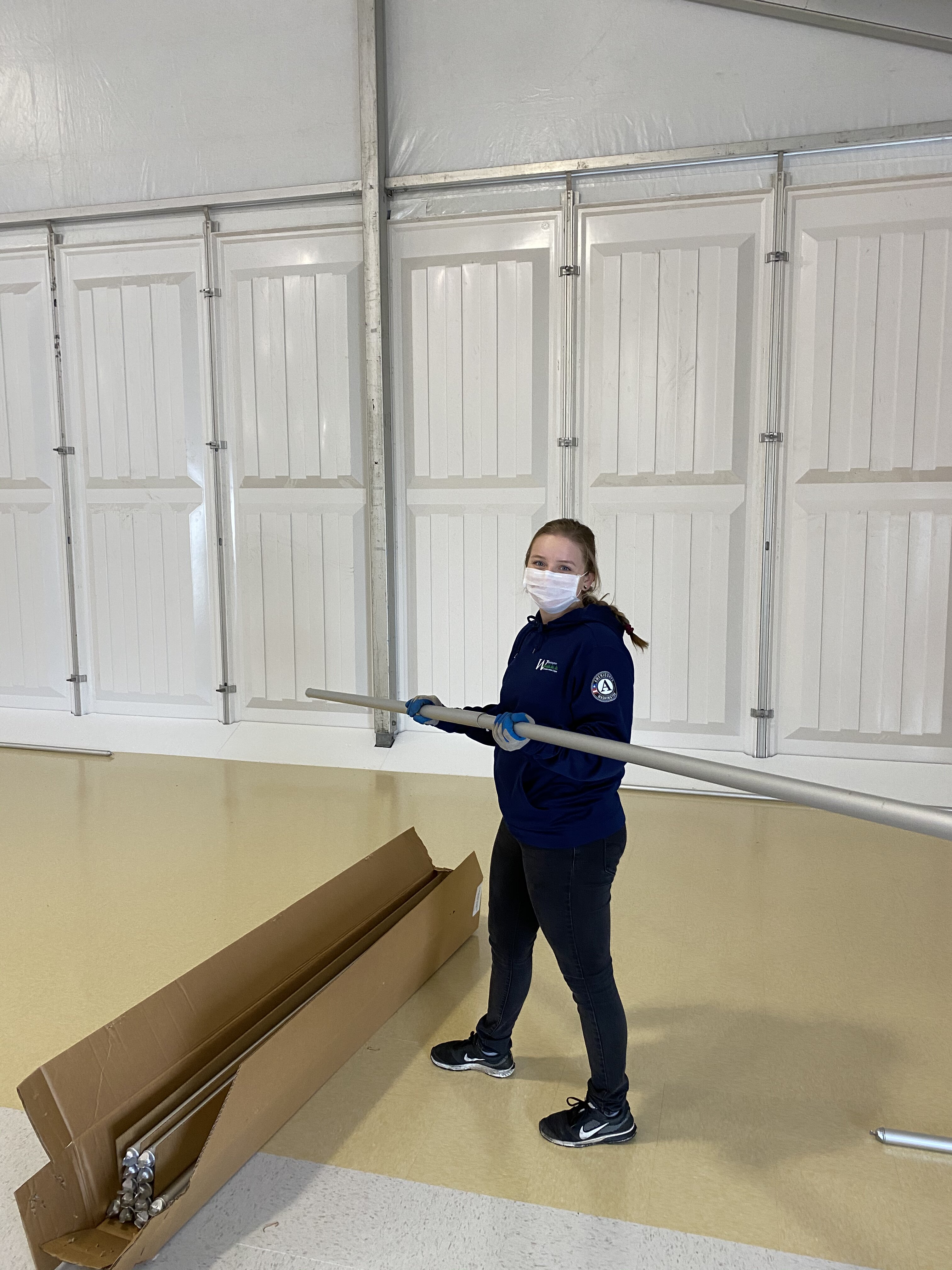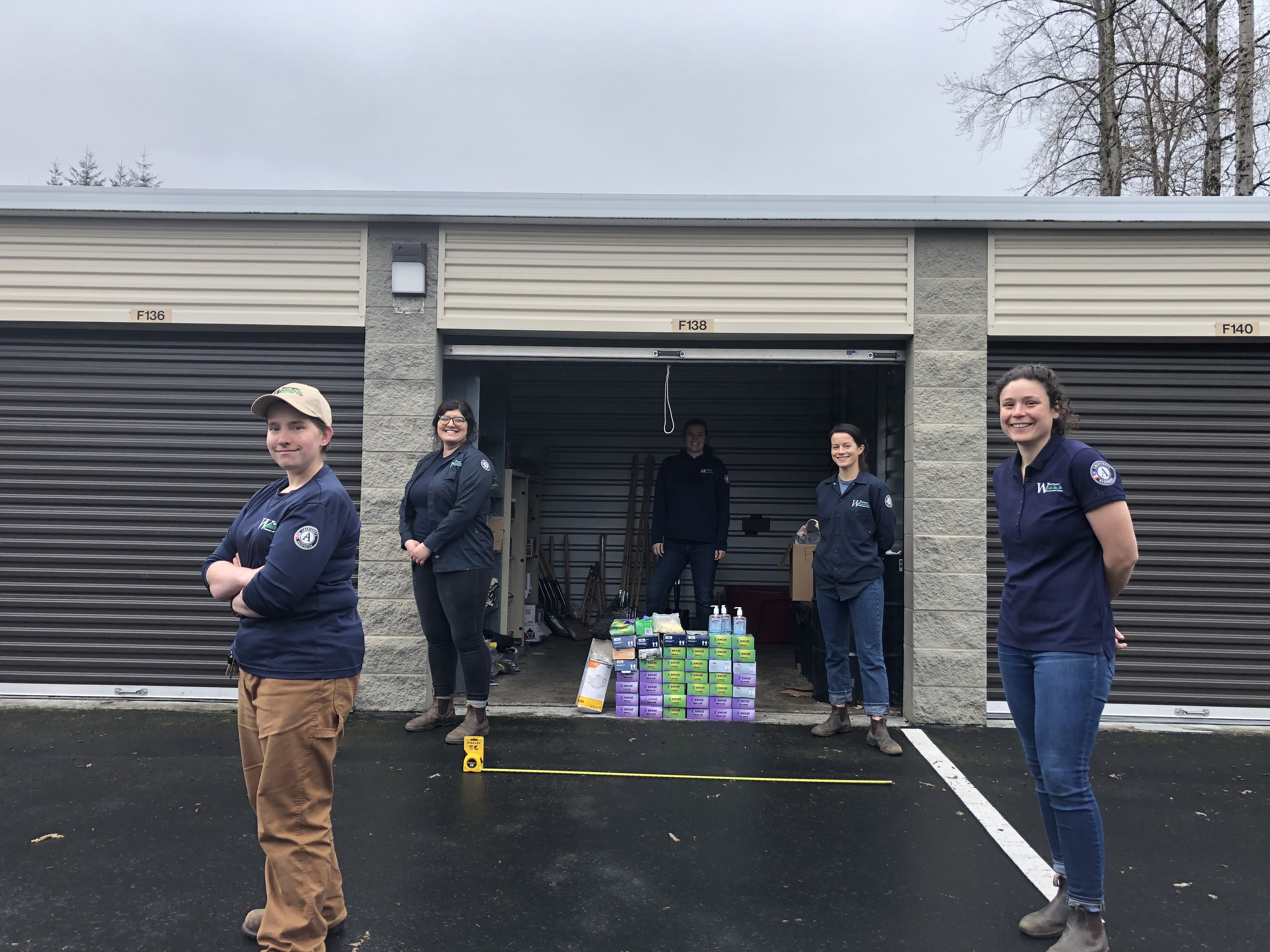
When building hiking trails, planting native trees or shrubs, or responding to local or national disasters, our Washington Conservation Corps (WCC) AmeriCorps members are used to practicing flexibility.
When field activities were temporarily suspended in mid-March to prevent further spread of the COVID-19 pandemic. our AmeriCorps members adapted quickly, switching instead to tele-service projects such as environmental training and discussion sessions, and member-to-member teaching through teleconference.
Some WCC members and staff are also supporting our state’s response to the coronavirus outreach.
Setting up shelters in King County
When responding to a natural disaster, WCC supervisors and members are often tasked with setting up and leading volunteer reception centers in affected areas. This experience came in handy last week when King County Emergency Management set up multiple sites for people to isolate and recover from COVID-19. We had 15 AmeriCorps members and three supervisors help set up nearly 300 beds in four field hospitals in Shoreline and Eastgate.
WCC supervisor Cynthia Saleh sets up a cot in one of the King County shelters. Photo by Alex M'Bark.
Supervisor Zoe Loutos said the group discussed safety expectations before arriving on site.
“Folks continued doing an impressive job of physical distancing, despite needing to collaborate together on almost every task,” she said. Staff and members safely unloaded desks, shelving units, beds, footlockers, side tables, and chairs to support the shelters, serving alongside contractors and Team Rubicon volunteers.
AmeriCorps member Celia Thurman was interested in setting up shelters to help her local community.
“Shoreline is actually 10-15 minutes from where I grew up,” Celia said. “It felt like I was helping the community, and that means a lot to me. When we got there, the tents were set up on a soccer field. I grew up playing soccer on that field, and babysat in that neighborhood.”
A WCC AmeriCorps member unloads equipment while setting up shelters in King County. Photo by Alex M'Bark.
AmeriCorps member Akiva Gebler talked about the impact of setting up medical facilities.
“In a time when the most people can do to help is to stay home, it was in many ways a privilege and an honor to be able to serve the county and local community by physically helping set up field hospitals,” Akiva said. “My hope is that our service will make it easier for the medical staff to safely and effectively do their jobs.”
Donating supplies and coordinating volunteers
Our WCC continues to be a resource for our State Emergency Operations Center in responding to COVID-19. WCC disaster response specialists Rob Crawford and Phill VanKessel are now coordinating volunteers and donation management. In late March, our supervisors and staff gathered personal protective equipment to donate to local emergency management and medical providers.
Offering tele-service opportunities and support for members
Supervisors are holding daily teleconference check-ins with their crews to ensure members have ongoing support and direction, and to facilitate teaching and sharing sessions. Crew coordinators host individual and group teleconference meetings to provide another layer of support. Everyone is adapting to new ways of leading and serving.
As we move through April and beyond, we maintain flexibility and commitment to supporting one another and the communities we serve.
*Group photo by Alysha Kaplan.
Crew supervisors




